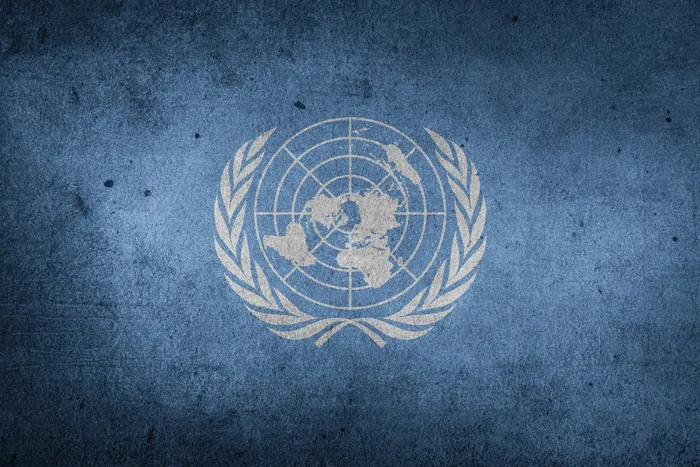Confronting the elephant in the room: veto power

Emblem of the United Nations Security Council
MELCHY MADISA AND JOSIA MOYO
The UN Summit of the Future, which is scheduled in New York for September 22 and 23, has generated widespread anticipation among international relations experts and practitioners. This is primarily due to the summit’s quest to broadly redefine international co-operation for the future, with a focus on one of the most contested issues – UN Security Council (UNSC) reform.
The UNSC has faced unprecedented calls for reform in recent years since its inception in 1945 after World War II. Such calls stem from the structure’s failure over the years to keep in touch with current realities, particularly the changing global power dynamics and its increasing inability to respond to major global crises efficiently.
The structure, primarily responsible for maintaining global peace and security, comprises five permanent members – the US, China, Russia, France and the UK – who are collectively known as the P5. Any of the five countries have the power to veto any resolution of the council. It also comprises 10 elected members who can serve only a two-year non-consecutive term, and are not afforded veto power.
The failure of the UNSC to respond to major crises, such as the conflicts in Sudan and the Democratic Republic of the Congo (DRC), the Russia-Ukraine war and Israel’s military operations and occupation in Palestine, among others, is indeed a testament to the body’s inefficiency and irrelevance to the realities of the global system. However, largely owing to that is the veto power wielded by the P5.
Thus, the most important question before us is: How likely are we to see the P5 forgoing their veto powers, particularly in light of the growing geopolitical tension? The shortest answer is simple: Highly unlikely, and this piece attempts to explain why that is the case at a surface level.
Among the P5, three countries are great powers – the US, China and Russia – who view the veto as a tool for their geopolitical rivalry and, most importantly, as an instrument to defend their national interests and promote their foreign policy objectives and that of their allies. To that extent, the countries can block any UNSC resolution that runs counter to their interests or that of their allies – even if it is spirited for the common good of global peace and security.
To be more precise, in light of some of the major crises and the geopolitical tension among the three great powers: Russia has used the veto to block any UNSC resolution that runs counter to its military objectives in Ukraine; the US has used the veto to counter any UNSC resolution that is not in the interest of Israel, its major ally in the world.
For China, veto power is an important tool to counter any US efforts that seek to undermine its One-China policy, given the US’s changing policy on Taiwan and its growing quest to contain China in the Indo-Pacific. To that end, the growing geopolitical tension among the three great powers will probably prevent any meaningful reform of the UNSC, that is, a reform that addresses the question of the veto power.
If the UN’s Summit of the Future was to succeed on UNSC reform, what would probably happen would not be different from the 1963 UNSC reform – when the council created four additional non-permanent seats – which expanded the council from 11 to the current 15-member composition. What would probably make it slightly different this time around is that the expansion might include permanent members, but the veto would probably remain exclusive to the original five permanent members.
Furthermore, there is a greater push from UN officials and the broader international community to afford Africa a permanent seat on the UNSC. The push is spirited for the common good of addressing the historical injustice of Africa’s lack of representation in the UNSC - despite the fact that more than 70% of UNSC resolutions pertain to the continent.
Unfortunately, Great Powers are likely to use it as “just another game” to advance their selfish interests by supporting their allies in the continent - which will further polarise the UNSC and the continent itself.
Therefore, the prospects of a future UNSC that is efficient and well-equipped to respond to the challenges of the 21st century lie primarily in addressing the elephant in the room - the veto power. Any outcome with the absence of such will be nothing short of a Band-Aid on a bullet wound. This is rather unfortunate as the world has never needed a meaningfully reformed UNSC than it does today, and conversely, the probability of such has never been as unlikely as it is today.
Melchy Madisa is a final year student of Political Science and International Relations at the School of Government Studies, North-West University, Mafikeng Campus.

Josia Moyo is a masters student in International Relations at the North-West University.

Daily News
Related Topics: